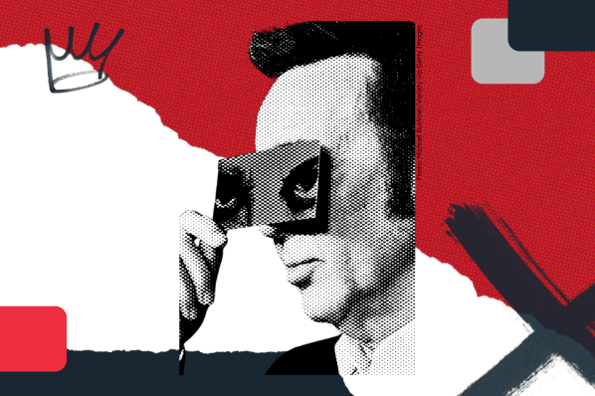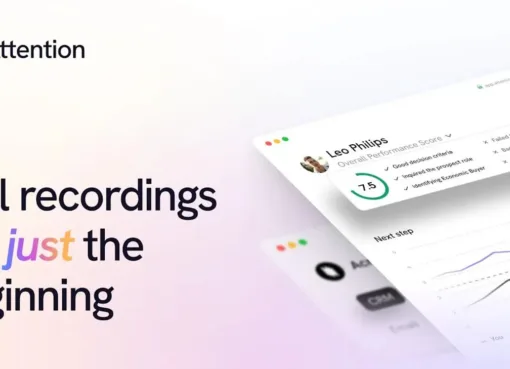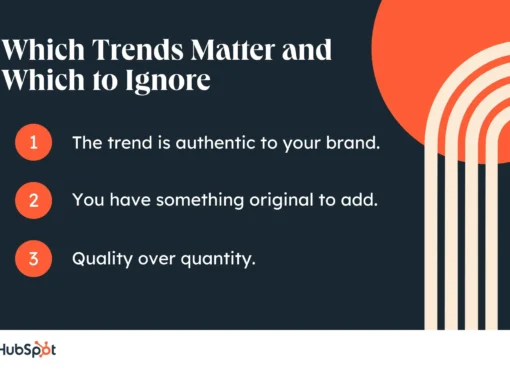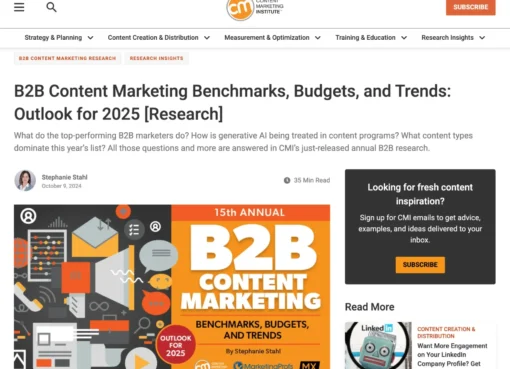Mid-June, 2024. A full page of indecipherable glyphs runs in The Seattle Times, with the only clue a typewritten-style note at the bottom: “Printed at the request of LONGLEGS.”

A week later, a user named Mr_Downstairs leaves strings of glyphs in the comments on Letterboxd.

Image Source
Billboards pop up; a partially obscured face peers down at drivers. In large red type, there’s nothing more than a phone number and a date. 458.666.4355. 7.12.

It was all part of an eerily good marketing campaign from indie film distributor Neon, and it racked up a respectable $22 million for Longlegs’ opening weekend in July. Arguably — don’t come for me — the campaign itself was more provocative than Nicolas Cage’s madman serial killer.
I asked our spookiest HubSpot marketers: What made Neon’s campaign so effective, and what tactics can we bring to our (hopefully) less macabre marketing efforts?
1. Build a continuous journey for your audience.
“The Longlegs campaign brilliantly invited people to step into the narrative, transforming them into active participants rather than a passive audience. By threading suspense and curiosity throughout its progression, the campaign ensures a dedicated and engaged audience eager for what’s to come.
“For marketers, this approach offers a clear lesson: Aim for more than just a single peak of interest — build a continuous journey that keeps your audience engaged and eagerly anticipating what’s next. By nurturing ongoing interest and curiosity, you create a dynamic relationship that leads to deeper connections and greater loyalty over time.”
—Carly CHILL-iams, director, media monetization
2. Build community and shared experiences.
“What’s so sharp about the Longlegs campaign is that it applies pressure from two angles. People don’t like unanswered questions but, on the flip side, they LOVE being a part of something.
“When the Longlegs audience tries to answer those unanswered questions, SURPRISE, they’re now part of a mystery game.
“That may be harder to apply if you’re marketing, say, drain plugs, but there are some lessons here that everyone can benefit from.
- Give your audience something to answer for themselves. Maybe that‘s plugging their details into a quote creator. Maybe it’s finding a coupon code somewhere on your site. Even mundane industries can enjoy a little mystery.
- Welcome them into being a part of something bigger. Maybe that’s a social community, a Slack channel, or a product forum. Even just giving a name to your audience can be a powerful way to create that sense of ‘something bigger.’ (Think of Swifties, the Bills Mafia, or Browncoats.)”
—Curt del PRINCE of DARKNESS, senior marketing manager

Image Source
“I love that I immediately want to share the experience. I want to send this phone number to my sister and wait for her totally weirded-out reply. It feels so special when a marketing campaign evokes a desire to pull more people in.
“As marketers, we think a lot about how to cut through today’s noisy marketplace. But sometimes we forget that creating an experience our audience wants to share with others is a great way to expand reach (and get our audience to do a bit of the heavy lifting).”
—Meg PraterGEIST, managing editor, blogs
3. Cultivate suspense.
“At Los Angeles’ BeyondFest this fall, programmers spliced the trailer for the American remake of Speak No Evil into pre-show entertainment, a cinephile joke poking fun at how often the various cuts of the trailer — which gave away much of the film — appeared in movie theaters leading up to its debut.
“Longlegs took an opposite tactic, reveling in minimalism. It never gave too much away in its trailers, leaving viewers to wonder when and how Nicolas Cage, its biggest star, would show up.
“Neon instead invited audiences into its mystery through a series of cryptic codes and phone numbers, building the same sense of dread and intrigue that Maika Monroe’s character — a young FBI agent — experiences in the film.
“Additionally, the marketing built an accessible, interactive alternative reality game (ARG) that could be freely enjoyed by fans everywhere, maintaining interest in the movie without spoiling it or exhausting potential customers.”
—GHOUL-iet Bennett Rylah, senior writer, The Hustle
“I think the marketing was effective because it cultivated a sense of suspense by planting breadcrumbs. Neon lets its target audience fill in the rest with their imagination, which can be the most powerful tool in both horror and marketing.
“Unfortunately, I was disappointed by the actual film — as were a ton of other folks I talked to online and IRL — so the marketing built up too much anticipation for me. The more the campaign let my imagination go wild, the higher my expectations were — and the bigger the discrepancy between my expectations and my experience.
“My takeaways:
- Know when to leave a meaningful blank. What’s left unsaid and unshown gives your audience space to imagine.
- Plant breadcrumbs. Marketers can encourage people to actively engage in your marketing campaign without them even realizing it. Give new information with each iteration of your campaign, and you’ll have your audience yearning for more.
- Use multisensory marketing. The phone number, audio clip, music, etc. contribute to the atmospheric success of this campaign, which the film did deliver on.
- Repurpose your content. A two-hour movie can spin out hundreds of mini content types, whether it‘s a still image, a number, a clip, or a series of puzzle pieces. You don’t even need to create new stuff — just make a meaty product and use the product itself to create marketing assets.”
—DYIN’ Zhong, senior marketing manager
4. Unite analog and digital marketing strategies.
“Neon did movie marketing, especially horror movie marketing, right.
“Movie promos are notorious for showing all the good parts, but Longlegs beautifully captured the suspense audiences would get in the movie and piqued curiosity without giving anything away.
“I love how the film’s marketing united the analog and digital worlds. People could see the billboard with its eerie imagery and move along, but if they called the phone number, they could actually experience it.
“This strategy brought them into the movie in a way, and made its value more of a reality. It’s not difficult for marketers from all backgrounds to mimic this with the use of URLs and QR codes.
“Plus, Neon’s trailers used behind-the-scenes footage and actual recordings of lead actress Maika Monroe’s heart rate the first time she saw Nic Cage as Longlegs.
“It makes the terror that much more tangible. They didn’t just tell viewers the movie was scary in their marketing, they proved it.”
—Ra-MOAN-a Sukhraj, principal marketing writer
5. Lean into imagination and interactivity.
“I’m a huge horror fan, and I was really impressed at how Neon took an entirely fictitious threat (Nicolas Cage’s Longlegs) and brought it into our dimension. (The nonfiction threat of Nic Cage himself predates the movie industry.) It’s a creative and immersive way to gain fan attention and build curiosity for moviegoers.
“Smile 2 did something similar, breaking the fourth wall in its marketing campaign by placing odd smiling people in random sports events or news broadcasts to draw attention to the movie.
“In that movie, the sinister smile portends a murderous threat. Bringing elements of it into our world adds legitimacy and makes the movie feel all the more plausible. That strategy also played into word-of-mouth marketing, as regular social media users would post the different smiling people they’d see on TV, igniting even more interest.
“What I take away from these frightful marketing campaigns is that the more imaginative and immersive your marketing team gets, the more you stand to gain from letting your viewers unravel the mystery or story.”
“Tap into their curiosity, use enigmatic symbols or details, and provide interactive elements that encourage investigation and sharing among friends — and you can transform a paid marketing campaign into a real hot topic.”
—Tristen Tay-LORD of the UNDERWORLD, Service Blog editor and marketing manager

Image Source
“What made this campaign so effective is that people were given a lot to work with — ciphers to decode, numbers to call, backstories to explore — but none of it gave people what they really wanted: a face reveal of the titular villian. You could only get that by watching the movie, which made people eager to show up.
“My favorite element was the audio of Maika Monroe’s heart rate when she first laid eyes on Longlegs. I expected him to be so agonizingly grotesque and off-putting that I was almost relieved when he was mostly just ugly. Since he wasn’t as hideous as I expected him to be, it made the true horror of the movie (which was also hidden from the trailers) hit even harder.
“Longlegs’ marketing is a lesson in the importance of interactivity. Giving your audience something to do that relates to your product or service makes them want to engage. And pre-engagement makes a product reveal, launch, etc., all the more exciting.”
—GORY Needle, senior marketing manager
6. Trust your audience.
“Longlegs’ minimalist drip marketing is an exercise in restraint. A few lines of glyphs here, a phone number there. It’s straight out of the scream queen playbook: The more that’s left to your imagination, the more horrifying it is.
“But for that to work, you have to trust your audience. That’s not always the easiest thing to accomplish, especially if you’ve been elbow-deep in marketing copy for days or weeks on end. But remember that your audience is made up of real human people, not numbers — the payoff can be tremendous.
—Laura M. DROWNING














![Holistic Marketing Works — Here’s How You Can Apply It to Your Campaigns [+ Expert Tips] holistic-marketing-works-—-here’s-how-you-can-apply-it-to-your-campaigns-[+-expert-tips]](https://blog.contentkrush.com/wp-content/uploads/2024/11/140539-holistic-marketing-works-heres-how-you-can-apply-it-to-your-campaigns-expert-tips-510x369.webp)
![How to start a blog (the right way) and write posts people actually want to read [+ free templates] how-to-start-a-blog-(the-right-way)-and-write-posts-people-actually-want-to-read-[+-free-templates]](https://blog.contentkrush.com/wp-content/uploads/2025/07/141889-how-to-start-a-blog-the-right-way-and-write-posts-people-actually-want-to-read-free-templates-510x369.webp)
















Comment here